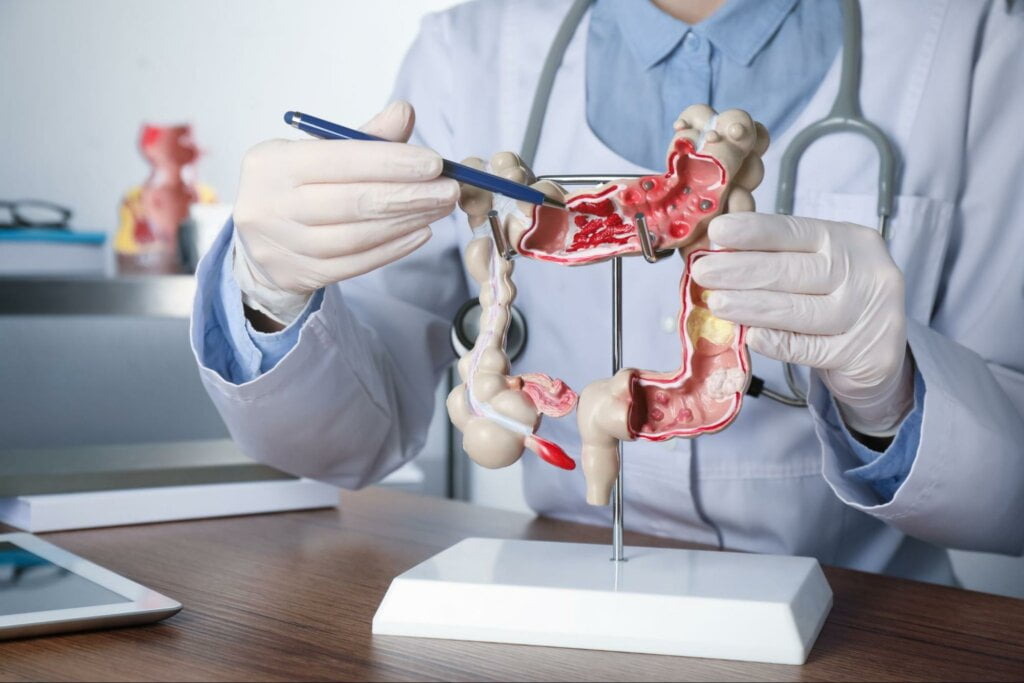Reading Time: 3 minutes
Who is a Gastroenterologist?

Introduction
Gastroenterologists are specialized physicians who focus on the diagnosis and treatment of disorders affecting the digestive system. This complex system encompasses various organs involved in digestion, absorption, and elimination. Gastroenterologists play a crucial role in managing a wide range of conditions related to the gastrointestinal (GI) tract, liver, pancreas, and other digestive organs. In this article, we will explore the diverse conditions that gastroenterologists treat, highlighting their expertise in providing comprehensive care to patients.
Gastrointestinal Diseases
Gastroenterologists are experts in diagnosing and managing various gastrointestinal diseases, including:
- Gastroesophageal Reflux Disease (GERD): Gastroenterologists evaluate and treat GERD, a chronic condition characterized by acid reflux from the stomach into the esophagus, causing symptoms like heartburn, regurgitation, and chest pain.
- Peptic Ulcer Disease: Gastroenterologists diagnose and manage peptic ulcers, which are open sores that develop in the lining of the stomach or the upper part of the small intestine, often caused by Helicobacter pylori infection or long-term use of nonsteroidal anti-inflammatory drugs (NSAIDs).
- Inflammatory Bowel Diseases (IBD): Gastroenterologists specialize in managing chronic inflammatory bowel diseases like Crohn’s disease and ulcerative colitis, providing comprehensive treatment plans to control symptoms, reduce inflammation, and improve quality of life.
- Irritable Bowel Syndrome (IBS): Gastroenterologists offer guidance and treatment options for patients with IBS, a common disorder characterized by abdominal pain, bloating, and changes in bowel habits without evidence of structural abnormalities.
Liver Disorders
Gastroenterologists play a critical role in the evaluation and management of liver diseases, including:
- Hepatitis: Gastroenterologists diagnose and treat viral hepatitis (such as hepatitis A, B, and C), autoimmune hepatitis, and other forms of liver inflammation, helping patients manage their condition, prevent disease progression, and minimize complications.
- Cirrhosis: Gastroenterologists monitor and provide comprehensive care for patients with cirrhosis, a chronic liver disease characterized by the replacement of healthy liver tissue with scar tissue, aiming to slow down disease progression, manage complications, and assess the need for liver transplantation.
- Non-Alcoholic Fatty Liver Disease (NAFLD): Gastroenterologists diagnose and manage NAFLD, a condition characterized by the buildup of fat in the liver, often associated with obesity, diabetes, and metabolic syndrome.
Pancreatic Disorders
Gastroenterologists are involved in the diagnosis and management of various pancreatic disorders, including:
- Pancreatitis: Gastroenterologists treat acute and chronic pancreatitis, an inflammation of the pancreas that can lead to digestive problems, abdominal pain, and complications like pseudocysts and pancreatic duct strictures.
- Pancreatic Cancer: Gastroenterologists collaborate with oncologists in the evaluation and treatment of pancreatic cancer, including the use of endoscopic techniques for diagnosis, staging, and palliative interventions.
Gastrointestinal Cancers
Gastroenterologists play a crucial role in the early detection, diagnosis, staging, and treatment of gastrointestinal cancers, including:
- Esophageal Cancer: Gastroenterologists perform endoscopic procedures, such as endoscopic ultrasound and endoscopic mucosal resection, for the evaluation and treatment of esophageal cancer.
- Stomach Cancer: Gastroenterologists conduct endoscopic examinations, biopsies, and other procedures to diagnose and manage stomach cancer, collaborating with oncologists for comprehensive treatment plans.
- Colorectal Cancer: Gastroenterologists perform colonoscopies and sigmoidoscopies for screening, detection, and removal of precancerous polyps in the colon and rectum, contributing to the prevention and early treatment of colorectal cancer.
Other Conditions
Gastroenterologists also manage additional conditions, including:
- Gallbladder Disorders: Gastroenterologists evaluate and treat conditions such as gallstones, cholecystitis (inflammation of the gallbladder), and other gallbladder-related disorders.
- Gastrointestinal Bleeding: Gastroenterologists play a crucial role in diagnosing and managing gastrointestinal bleeding, determining its source and providing appropriate interventions.
- Malabsorption Disorders: Gastroenterologists assess and treat conditions that impair nutrient absorption in the digestive system, such as celiac disease, lactose intolerance, and pancreatic insufficiency.
Conclusion
Gastroenterologists are specialized physicians who possess expertise in diagnosing, managing, and treating a wide range of conditions affecting the digestive system. From gastrointestinal diseases and liver disorders to pancreatic disorders and gastrointestinal cancers, they play a vital role in providing comprehensive care to patients, improving their quality of life, and optimizing long-term outcomes. Their comprehensive approach, incorporating diagnostic procedures, medical therapies, lifestyle modifications, and coordination with other specialists, allows for tailored and effective treatment plans. Through their knowledge and skills, gastroenterologists play a crucial role in improving patient outcomes, providing relief from symptoms, and promoting overall digestive health.
